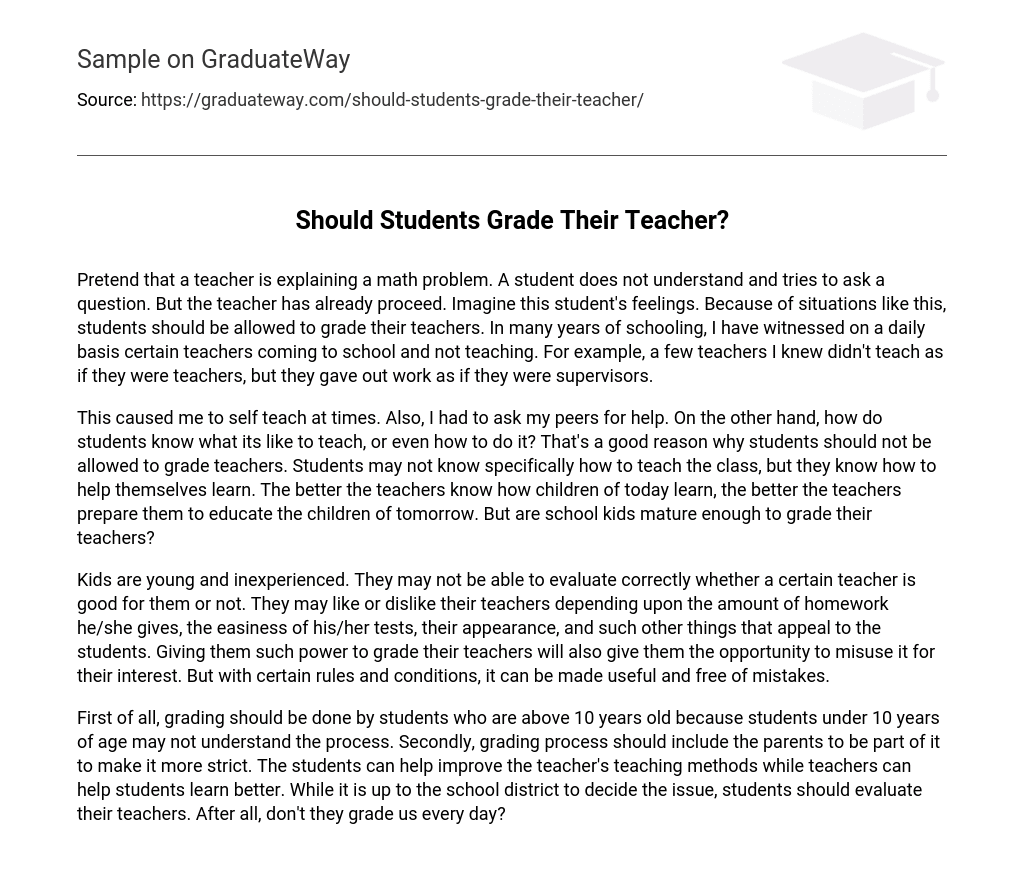Pretend that a teacher is explaining a math problem. A student does not understand and tries to ask a question. But the teacher has already proceed. Imagine this student’s feelings. Because of situations like this, students should be allowed to grade their teachers. In many years of schooling, I have witnessed on a daily basis certain teachers coming to school and not teaching. For example, a few teachers I knew didn’t teach as if they were teachers, but they gave out work as if they were supervisors.
This caused me to self teach at times. Also, I had to ask my peers for help. On the other hand, how do students know what its like to teach, or even how to do it? That’s a good reason why students should not be allowed to grade teachers. Students may not know specifically how to teach the class, but they know how to help themselves learn. The better the teachers know how children of today learn, the better the teachers prepare them to educate the children of tomorrow. But are school kids mature enough to grade their teachers?
Kids are young and inexperienced. They may not be able to evaluate correctly whether a certain teacher is good for them or not. They may like or dislike their teachers depending upon the amount of homework he/she gives, the easiness of his/her tests, their appearance, and such other things that appeal to the students. Giving them such power to grade their teachers will also give them the opportunity to misuse it for their interest. But with certain rules and conditions, it can be made useful and free of mistakes.
First of all, grading should be done by students who are above 10 years old because students under 10 years of age may not understand the process. Secondly, grading process should include the parents to be part of it to make it more strict. The students can help improve the teacher’s teaching methods while teachers can help students learn better. While it is up to the school district to decide the issue, students should evaluate their teachers. After all, don’t they grade us every day?





